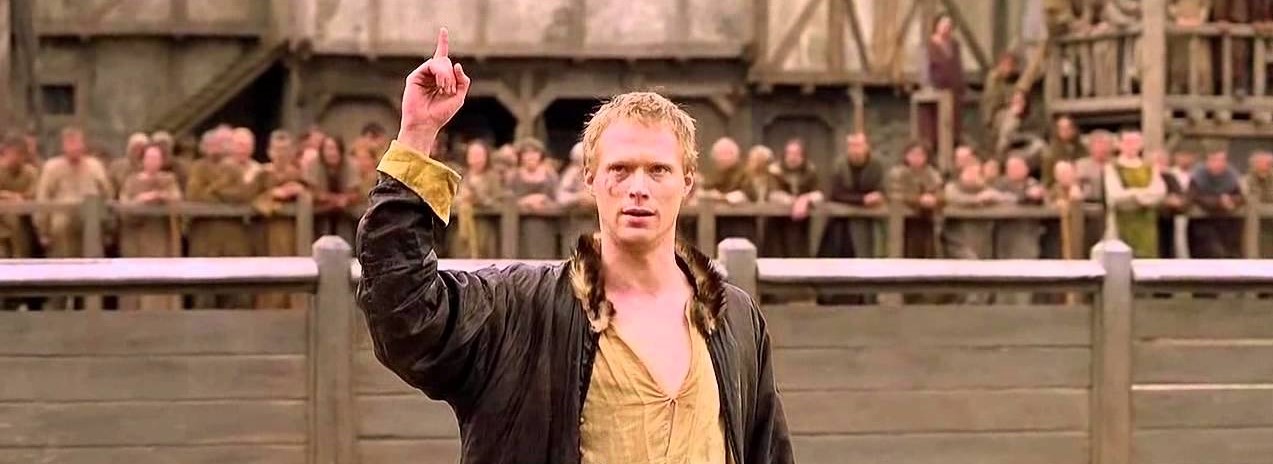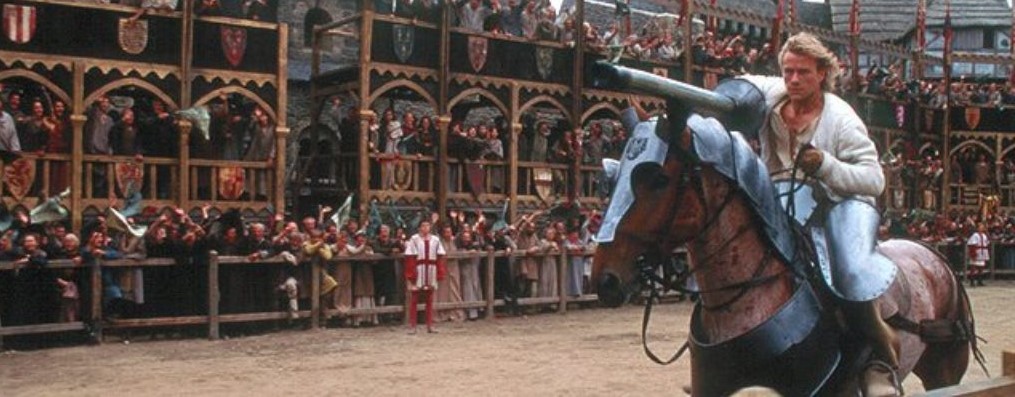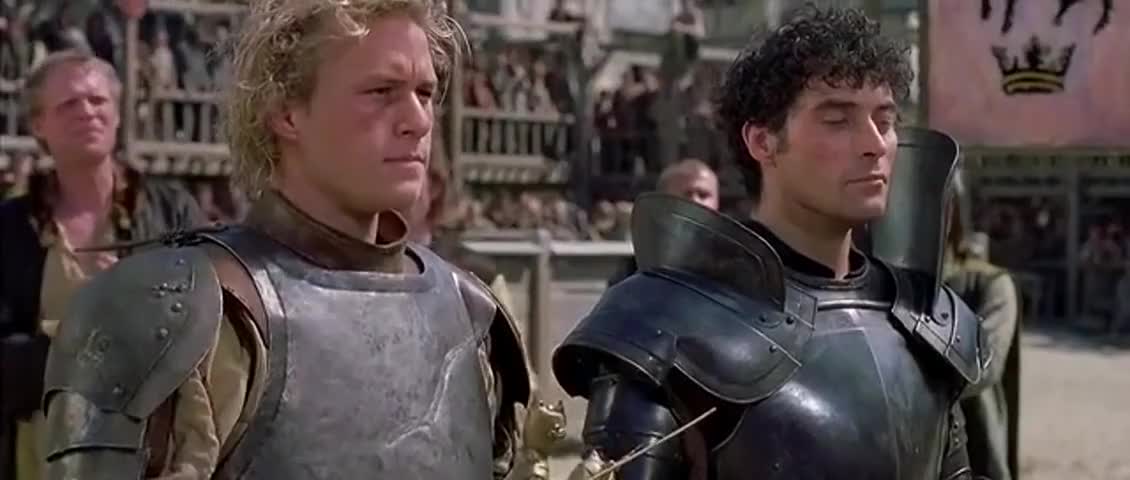Is SEO Important? Google Search and the Adhemar Theory
You've been weighed, you've been measured and you've been left wanting. If your site is not properly optimized, Google's ranking strategy hurts your potential traffic constantly. Before we get into the reasons why, let me explain why I think this line from the film "A Knight's Tale" perfectly describes Google's approach to ranking methodology and why I think it should be shown and discussed as part of every B school curriculum.
Is "A Knight's Tale" actually Entreprenuership 101?
So what does SEO have to do with an adventure rom-com that's set in the 14th century? Watch it again, only this time through the lens of it's less-heralded story line. Honestly, you can't even call the entreprenuerial underpinnings a subplot because everything that unfolds has everything to do with starting and running a successful business. I challenge anyone to find a business today or in the past twenty years that cannot attribute at least some of their success to doing things right on the internet?
When you finally have time to break out the popcorn, sit back and enjoy but pay attention and bring up this page to follow along, or at least make a mental note beforehand.
Medieval Rom-Com, A Start-up In Disguise
Three lowly wagies are hit with what seems an insurmountable series of events. (Their boss dies unexpectedly.) One of them (William) has a crazy idea and convinces the other two (Roland & Wat) to support his endeavor. It's day zero of this adventure so naturally, equity is distributed three ways equally.
Given their raw talents, each one is assigned a specific role and are obligated to fulfill their duties and responsibilites, They create a business plan using everything they have on hand to cobble together an MVP (a minimum viable product in the form of a tournament fighter). While en route to introduce their product to the marketplace they encounter a fellow who had the potential to become a fantastic PR guy. One Geoffrey Chaucer, also in dire circumstance. He decides to join them.
 Paul Bettany as Geoffrey Chaucer - A Knight's Tale Columbia Pictures
Paul Bettany as Geoffrey Chaucer - A Knight's Tale Columbia Pictures
They break a few industry rules along the way but thanks to their raw talent and a good PR strategy, they disrupt the equilibrium of their market space (that being the Tournament circiut). Like everyone and everything else, you have your fans and and you hate your haters. Fans are the common folk, a few key Champions and some additional talent, who are drawn into their circle. Haters are exclusively those threatened by the disruption of their marketplace.
Threats to their product are mounting. First verbal then physical, our former Market Leader, The wealthy and powerful Count Adhemar who'd like nothing better than to squash his competition throws down with "You've been weighed, measured..." and this is where the SEO parallel comes in. We're almost there, I promise.
Despite these threats, it's worth mentioning that all that raw talent of theirs has developed into expertise and with it, a bold fearlessness as they continue to push their way into the marketplace. While this was on some levels a bit reckless, they still had the wisdom to realize that their product's performance was peaking and embraced innovation to improve it. Remember the initial doubt, testing, and acceptance of the lightweight armor?
The Dark Ages Play Out Their Version of TechCrunch Disrupt
How about all of those rules they broke? Think Google search policy violations... While on the cusp of establishing market dominance they were investigated by a threatened party, found out and punished severely for it. Thankfully a well-positioned friend was made along the way. Whether you consider him a Champion, a Sponsor, or just a Believer, our Prince Edward assessed that the rules were too trival and the product far too valuable to be pulled from the market. Edward's power and influence was so invoked to soften the penalty and allow Team William to compete.

Heath Ledger in A Knight's Tale Columbia Pictures
In a classic Hollywood style, a head-to-head performance test commences and after being wrung through some mild peril and nailbiting, a victor emerges. Our guys win! Their market dominance has been secured and they've sent the old guards packing, or at least home to lick their wounds. Back in reality though, there's no magic formula, nor are there experts able to map out a perfectly paced trajectory to rocket all of you hard work into a success story. You can however induce an approximation of a well paced trajectory by
One of the things that you can do right now, is to begin to understand, master and properly apply the language and structure that Google was not only responsible for helping create, but one they rely on to efficiently crawl, evaluate and rank websites and web pages.
The Many Languages of Success
How many ways can you say 'success'? Consider the spoken word. There are about 6,500 different languages in use today. Many of these languages have enough complexity to have synonyms, variations, or word cominations that intimate the same meaning. Google returns (in one language mind you)
over 1.8 billion different results for they think "success" means in less than a second. The reason they can provide so much so quickly is that they've invested a great deal of effort, time and money in developing an organized structure that content providers and Google itself can leverage to service their consumers when using a their search engine.
Here's the most important thing that you can cement in your mindset before you publish another webpage or update. The more adept you are at outlining "what your content is..." in the context of Google's crawl structure, the better your ranking and likelihood that your content will see the eyes of a potential customer. Compelling content also lends significantly to search rankings but to really see the boost you're hoping to achieve, things have to be great on both ends.
What Google Expects When Categorizing Website Content
If you built your own website it's extremely likely that you picked up a free themed template and if your the type of person who likes to secure a little more confidence in your investment, maybe you shelled out $10 to $60 dollars to purchase a template. If you hired a web design team because your short on time and know-how, it's very likely they did the same thing. Don't get me wrong, templates are great for standing up a digital asset quickly, especially when your focus should be on creating well-organized consumer geared content and getting that content to play nicely with Google search. Coding a site from scratch is a real bear and I'm not even about to get into color psychology, color pairings and flavor profiles. The fact is that 94% of a page viewer's first impression is based on visual aesthetic. Let the template creators continue doing what they're good at but full disclosure, there are some things that their not so good at.
Whether your template was free, paid or even claimed to be "SEO friendly", there are often critical components that should be present but are not. Here's a quick check you can perform.
Assess Your Themed Template
Contact Avajae Solutions and we'll give you an assessment of your site's legibility for free. Just include 'Rate My Template' in the subject and be sure to include your website's URL in the message so we can help confirm whether you've got things tied together pretty nicely, or we can help identify any essential elements that may be missing from your investment.
If you're skeptical of free assistance, there's an easy way you can manually check for missing elements on your pages.
Manual Check for Page Consistency and Search Optimization
Go to your webite and move your cursor anywhere within the page. Then right-click your mouse and select 'view page source' from the drop down menu. A new tab will open displaying the all of the code that formats your site sections, links, text and images. Now (while you're still on the code tab) hit 'Ctrl+F' which opens a word search for your open page. Go through the list below and if even a few things are missing,
Have fun but remember, the Avajae team is ready to help you identify any misleading or missing continuity that needs optimized outlining for your audience and search engines.
- Is your tab title descriptive? - type < title> in search. Does the language there reflect the contents of your page? It can and should.
- Did you chose a favicon graphic and does it load to your site's browsing tab? - type shortcut icon in search. If there's an associated image assigned that image should be showing on the left side of your site's browser tab.
- Meta names and properties - type Meta and you should see a number of items. 'Meta name =' should have an element called 'description' in which you describe the page's content. The 'Keywords' element outlines the KW's you're trying to get the page to rank for. Properties help describe your location, language used, page title and a few others that help define your business. If these are absent or blank they are useless. If they're not directly related to the page's content, you're misdirecting Google on how they categorize your page.
- Is Google Analytics installed? - type Analytics in page search. Do you see 'Global site tag? Does the account number match your GA account number?' If you don't currently have an Analytics account set up, get started now. Otherwise you have no visibility into your site's performance.
- Competent H1 H2 headings structure - Many templates opting for visual impact concentrate efforts on non-heading formatting and often overlook heading structures. Type H1 and you should see keyword phrases that correlate with both your Meta keywords and your content beneath the heading. The same thing applies for H2 headings.
- Did you work a keyword into the URL? It's not always possible but do it if you can. It's yet another metric that helps Google categorize your page's contents. Review your link that displays in the browser address field. If there's one of your keywords there that matches or is related to your meta keywords, and the URL string makes sense to the reader, that's a good thing.
Getting each of the above items right plays an important part in providing search engine technology with as much relevant, descriptive and easy (for Google) to decipher so they can properly categorize and rank your pages. Getting several things wrong should force you to rethink your current strategy (perhaps with some expert assitance) and assemble and deploy a plan the works better with search engine technology. If you're unsure of what to do next, Contact Avajae Solutions and we can assess this for you and go deeper than the checklist above at no cost to you.
 A Knight's Tale Columbia Pictures
A Knight's Tale Columbia Pictures